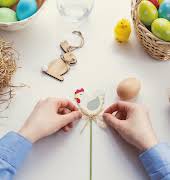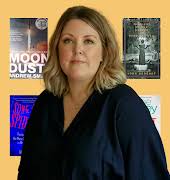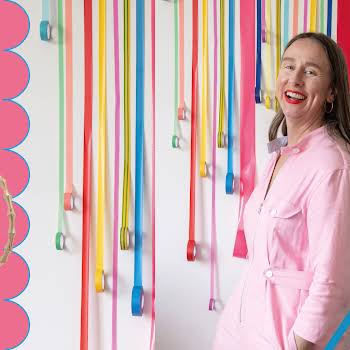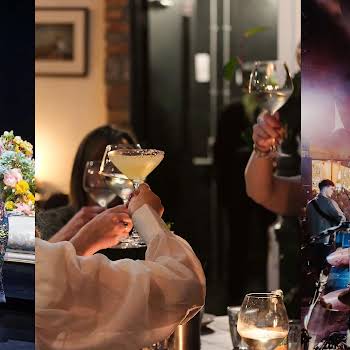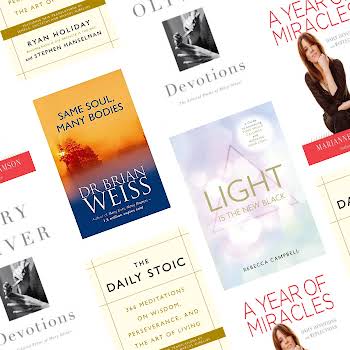
By Jennifer McShane
08th Jan 2019
08th Jan 2019
The year 2018 was a brilliant year for reading. Here are 10 books that really stood out for us (in no particular order). If you’ve missed these, be sure to add them to your TBR list as we begin 2019.
Emilie Pines’ Notes to Self (Tramp Press, approx. €10.99, out now)

Emilie Pine is a startling writer. Her immensely powerful collection of deeply personal, interlocking essays on addition, rape and infertility jump out from each page. Each story is emotive; from the loneliness of infertility to the wrenching exhaustion of loving an addict – and, above all, it’s real.
The UCD lecturer shrewdly self-examines, yet her singular voice is almost a rallying cry; a call to arms for women. She’s that voice. The voice inside that wonders time and time again, ‘is it just me who feels like this?’ One of its greatest achievements is that it almost totally silences those waves of doubt we can constantly feel. Read it once, read it again, and pass it on to every woman you know.
Anna Burns’ Milkman (Faber & Faber, approx. (€12.99, out now)

Immersive. That was only one of the praises heaped on this, the winner of the prestigious Man Booker Prize 2018. Author Anna Burns is the first in Northern Irish writer to win the literary honour for her telling the story of our protagonist; an unnamed 18-year-old girl, who we know only as ‘Middle Sister,’ being pursued by a much older and, as it so happens, menacing, paramilitary figure, the milkman.
It’s a tome that disturbs, but it’s extremely vivid and highly original. It challenges the reader. Timely and relevant, the Troubles-set novel about a young woman being sexually harassed by a powerful man has never felt more potent.
Marianne Power’s Help Me! (Picador, approx. €10.99, out now)

Self-help books tend to get a bad rap, but in the deft hands of Marianne Power, it’s anything but. Subtitled One Woman’s Quest To Find Out if Self Help Really Can Change Her Life, the journalist was stuck in a rut and decided to faithfully follow the diktats of a different self-help book every month to see if she could achieve true happiness.
And did it work? To put it simply, Marianne quickly realised that life keeps happening no matter how many self-help books you read and yet it’s her no-nonsense advice that shines through. It’s funny and fearless, with excellent pearls of wisdom from Marianne’s mum added in (this really works). I loved it.
Caitlin Moran’s How To Be Famous (Ebury Press, approx. €14.99, out now)

Caitlin Moran’s How To Be Famous follows nineteen-year-old Johanna Morrigan and her musical journalist alter-ego, Dolly Wilde, after she moves to London and becomes a columnist. Her job is to put pen to paper and depict the life of ‘The Famouses’ AKA those who are really, properly famous.
But she gets more fame than she bargained for thanks to a disastrous two-night- stand with the slimy comedian Jerry Sharp which results in public sexual shaming. This anticipated follow up to How To Build A Girl, is hilarious and endlessly relatable.
Sally Rooney’s Normal People (Faber & Faber, approx. €15.99, out now)

Sally Rooney’s second novel is one of those slow-burners; the more time you give it, the more it gets inside your head. Longlisted for the Man Booker prize, we follow Marianne and Connell, a couple from their early school days into their post-graduate lives. Both are opposites in every sense, yet their romance is intense and powerful.
It’s a love story that works, because you root for them as a couple, yet it’s about so much more than a relationship. The themes of class, wealth and power are all shrewdly observed by Power and it makes for a truly superb read. She’s now the darling of the literary world, and once you finish this, it won’t be hard to see why.
John Boyne’s A Ladder To The Sky (Doubleday, approx. €11.99, out now)

What would you do to grab even one brilliant idea? Maurice Swift deems this his obsession when he realises that for all his good looks, charm and ambition, nothing can be achieved unless a great idea precedes it. A chance encounter with a celebrated novelist sparks a way out of this dilemma: he’ll use the stories of others and pass the work off as his own.
Eventually, these stories make him famous but he’s begged, borrowed, stolen – and done much worse to get them. The beloved Irish author puts a fresh spin on the phrase ‘everything’s copy’ – and it makes for a truly fascinating read.
Kelleigh Greenber-Jephcott’s Swan Song (Hutchinson, approx. €16.99, out now)

This vivid debut novel centres on the rise and fall of Truman Capote. After In Cold Blood has reached wild literary acclaim in the 1970s the revered novelist suffers a severe case of writer’s block, he uses beautiful, venerable, wealthy women, he called his ‘Swans,’ from Slim Keith to Babe Paley to write his infamous roman à clef – the book he considers to be his greatest masterpiece.
But in exposing the secrets of Manhattan’s rich and elite, his own downfall and self-destruction are secured. A book that was based on ten years of research and a dazzling read.
Libby Page’s The Lido (Orion, approx. €9.99, out now)

Libby Page’s The Lido is, quite simply, pure feel-good fiction. We follow 86-year-old Rosemary, a life-long Brixton-ite, and young newcomer to the area, 26-year-old Kate. On the surface, the may be generations apart, however, the women have two things in common: they are both alone and lonely, and they both love outdoor swimming.
This passion that is threatened when the eponymous lido is threatened with closure, and so a friendship forms as they try to prevent this from happening. It’s heartwarming and an absolute joy to read.
Claire Fuller’s Bitter Orange (Fig Tree, approx. €9.99, out now)

Narrator Frances is recalling in old age the summer of 1969, which she spent in a dilapidated English country house. There, while on an assignment, she meets Cara and Peter, an enigmatic couple who take Francis under their wing. They indulge her with luscious picnics, skinny-dipping and plenty of wine, and soon, she becomes enamored.
But something is off; the couple’s stories don’t match up. Very quickly you come to question whether she, Peter or indeed Frances is telling the truth. It has all the claustrophobic undertones of Ian McEwan’s Atonement and slowly builds up before a truly surprising end. A story that stays with you.
Jodie Picoult’s A Spark of Light (Hodder & Stoughton, approx. €12.99, out now)

This timely and nuanced novel from the best-selling author Jodi Picoult sees her look at every side of the controversial ‘right to choose’ debate. A gunman takes the staff and clients hostage at a US women’s reproductive health centre, intent on exacting revenge for his daughter’s choice.
She expertly gets into the heads of the gunman, the negotiator, the clinic staff and the women trapped inside that day. It’s an emotive issue, and Picoult expertly and unflinchingly depicts all sides.


